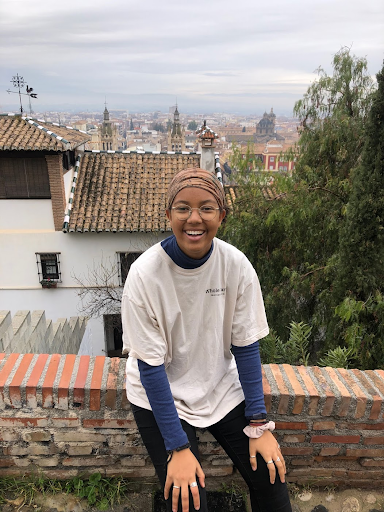
This blog was written by Alex Gordon, the newest team member of PLAN (Post Landfill Action Network), TEJAS (Texas Environmental Justice Advocacy Services), and CCJ. Alex will be working with PLAN to implement a Zero Waste Atlas analysis at Eckerd College, in addition to working with TEJAS and CCJ on strategic petrochemical campaigning at colleges and universities.
She is a current Sophomore at Eckerd College in St. Petersburg, Florida studying Political Science and Environmental Studies. Alex is most passionate about grassroots organizing around environmental and climate justice. Right now she is safe with her family in Houston, Texas. In her free time, she loves to read dystopian novels, walk her dog, and spend time at any beach.
As a current student, it sometimes seems like I’m having the same conversation with my friends and family over and over. We discuss the latest climate science reports, get a little riled up, start brainstorming things we can do, and maybe even do them. This cycle may be great at first, but I feel like I‘m just getting caught up in the same old same old.
A little background on me: I am from Houston, Texas, and have known since the BP Oil Spill, at the age of 10 years old, that I wanted to get involved with protecting the environment in the community I am from. It wasn’t until my very first Environmental Studies class, during my first semester of college, that I was formally introduced to the term Environmental Justice. This was a concept I was forced to know, just based on where I grew up, but was shocked and excited to learn it was an academic concept. I was even more shocked that there was a whole movement behind it. I spent my first year of college organizing around getting the Break Free From Plastics Campus Pledge signed, with support from the Student Public Interest Research Group (PIRG) and the Post-Landfill Action Network (PLAN). Through grassroots efforts, we won our campaign and started implementing the pledge this January. Doing this work was incredible but, as I said, I feel like the environmental movement, for me, has been circling around the same or similar conversations for some time now.
The Environmental Justice Movement could be our means to shake things up: sparking new conversations and solutions, forging a path to true equity and justice, through just organizing practices and community partnerships. PLAN, Texas Environmental Justice Advocacy Services (TEJAS), and the Center for Coalfield Justice (CCJ) are doing just that, and I am beyond excited to help contribute to their efforts this Summer.
You can read so much more about their work and wins on their websites but in a nutshell, all of these organizations work to achieve environmental justice, fighting to protect our right to clean air, clean water, and green space. CCJ and TEJAS are doing incredible work in their regions of Appalachia and Texas, respectively. Though these two regions are physically distant, their efforts are deeply connected and they are fighting together for a safer future.
I’ll be connecting the different parts of this fight by focusing on petrochemical plants and pollution. For years, oil and gas have devastated these regions, impacting individuals and their wider communities. Now, as the industry grows and expands, petrochemicals have become a necessary topic of protest. My work on the BFFP Pledge allowed me to truly see how devastating plastic is at all phases of its very long life. The industry is completely dependent on petrochemicals, which pollutes neighborhoods and contributes to climate change. Though my work on plastics has primarily been focused on the intervening point of consumption, looking at production is just as essential.
Young people have been paramount to just about every successful social movement in this country, with the Climate Movement, and the revolt against oil and gas being no exceptions. Regardless, we still see a gap in youth involvement in petrochemical organizing. College students are an especially-untapped resource for the movement against petrochemical expansion and, this summer, I aim to work with these three aforementioned organizations to help mend that.
Though things may have gotten a bit turned around by the current pandemic, this is a profound moment in our history. A line from My Shot in the musical Hamilton, stating “This is not a moment, it’s the movement,” plays frequently in my mind these days, out of recognition and excitement that this time is a moment for our movement, and an opening perhaps, to make lasting systemic change.
College students will have to be a part of that change-making process, in conjunction with organizations like PLAN, TEJAS, and CCJ to make this happen. We are all so deeply connected and I think this crisis is clearly showing us that (read more here). Through that recognition, I am hoping we all lean on our interdependency more, recognize the intersections of our lives, and continue a conjoined fight to protect our right to clean air and water. Though we may be having similar conversations frequently, they are so necessary. However, new conversations, like those rooted in environmental justice and inclusive of college students, are equally as crucial. To those reading, I encourage you to challenge yourself, and see what other intersectionalities, points of intervention, and values you can incorporate into your own work to spark those new conversations and push our movement forward.
